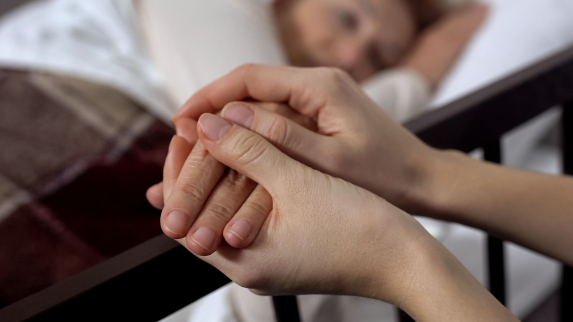A Rutgers Health study is the first to examine a national sample of adults on their knowledge of and preference toward Medical Aid in Dying. Most people in the United States don’t know that medical aid in dying, a legal practice that allows terminally ill patients to obtain a prescription for medication to end their life, is legal in certain states, according to Rutgers researchers.
Their study, published in JAMA Network Open, surveyed 3,277 adults from all 50 states and Washington, D.C., to evaluate their knowledge of the legality of the practice as well as their interest in potentially using it should they receive a terminal diagnosis in the future.
Medical aid in dying (MAID for short) is legal in 10 states – including New Jersey – and Washington, D.C., covering one-fifth of the U.S. population. Despite increasing legal availability throughout the nation, Rutgers-led research found that 51.3% of survey respondents didn’t know if MAID was legal in the U.S., and 50.8% were unsure about its legality in their own state.
“Survey respondents’ lack of awareness was particularly surprising in states where MAID is legal, which lets us know that those with access to MAID may not be aware of their end of life health care options,” said Elissa Kozlov, an assistant professor in the Department of Health Behavior, Society and Policy at the Rutgers School of Public Health. “For example, MAID is legal in New Jersey, but only 11% of survey respondents from the Garden State were able to correctly identify that MAID is legal in their state.” To read the full story.

